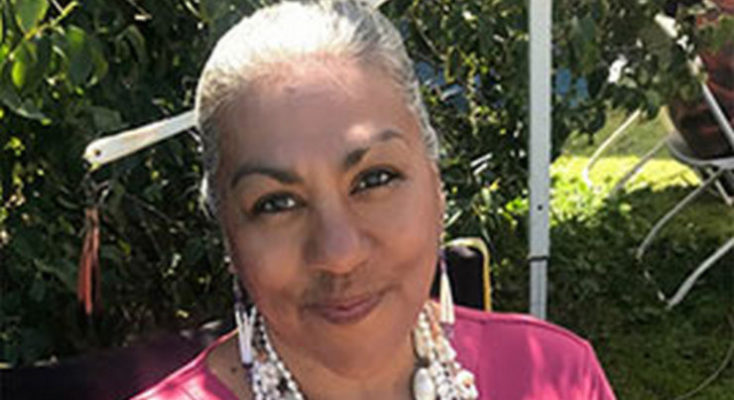
Various organizations in and around Pasadena have planned events to celebrate local native American culture.
One such local indigenous tribe is the Gabrielino Tongva peoples, indigenous to the LA region.
Known as “people of the Earth,” the Tongva were deeply connected to their environment, believing that humans must participate in a mutually respectful relationship with plants and animals.
Tina Orduno Calderon, a Culture Bearer of Gabrielino Tongva peoples and a traditional singer, dancer and storyteller, spoke with Pasadena Now shortly after she shared stories, songs, and history of the local tribe at a recent event sponsored by the Altadena Library District.
History of Gabrielino Tongva
When the Spanish first arrived in Southern California in 1769, there were nearly 100 Tongva villages and 5,000 people.
According to Calderon, their traditional territories include the areas currently known as Los Angeles County, Riverside County, parts of Orange County as well as the four southern Channel Islands.
The Gabrielino Tongva population is estimated to be at 3,000 today.
“We probably have about over 3000 citizens and there are several different bands of Gabrielino Tongva peoples. So it’s not just one tribe,” Calderon added.
Gabrielino Tongva is the first state recognized tribe in Los Angeles (L.A.) County.
Despite a history in Southern California dating back for millennia, descendants of the native inhabitants of L.A. County are yet to achieve federal recognition of their tribe.
“We are not federally recognized. We are considered a state recognized tribe, which means a lot of the programs that are put out for native peoples do not apply to us,” said Calderon.
She however expressed hope that with the ongoing awareness campaigns in the community, Gabrielino Tongva peoples will eventually get the benefits being received by the federally recognized tribes.
“Schools are now bringing in awareness. So I see eventually we may get to where the federally recognized tribes are as far as benefits and knowledge of our peoples.”
Over the years, due to colonization, the tribe has lost its lands, languages and traditional culture. But Calderon believes they are now able to bring back and uphold the Tongva cultural heritage and traditions with the help of culture bearers and the community.
“The good thing is that it is in revival mode,” she said.
“We are bringing back our language and we have culture bearers that are able to promote the tribe’s history. It is not just the tribal people that are interested, it’s the people who live on our lands now. We are finally being seen and recognized,” added Calderon.
Calderon hopes that the community will continue recognizing the tribe and spread awareness about its practices that could help the environment and contribute to the fight against climate change.
“We’re still here,” she said. “We’re willing to work with your communities to help you with the environment and planting food for the people – to be resilient as our ancestors are and mostly to be good caretakers, not to be so controlling with the lands and the waters.”
Calderon added that she strives to honor her ancestors and inspire the community to respect the lands, water, sacred elements and environment.
More information on the Gabrielino-Tongva Tribe is available at gabrielinotribe.org.














 1 comment
1 comment


